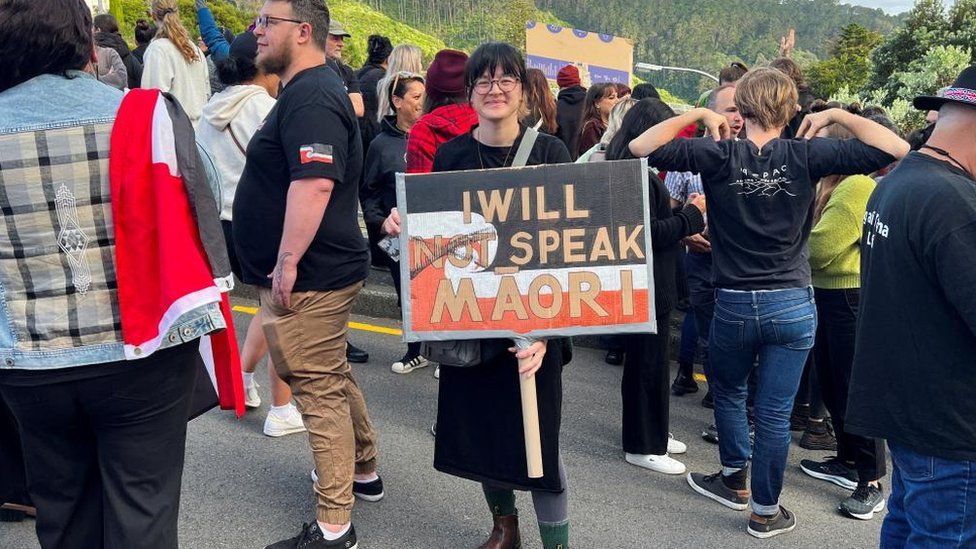-

-
-
Loading

Loading

Protests have erupted across New Zealand against the new government's intention to reverse policies that granted Indigenous rights. Prime Minister Chris Luxon's right-wing administration aims to reinterpret the nation's Indigenous treaty and reduce the use of the Māori language. Māori leaders have accused the coalition government of being "anti-Māori." Meanwhile, the government claims it is committed to improving conditions for both Māori and non-Māori communities. However, Tuesday's protests saw hundreds of cars blocking roads in Auckland, with two arrests made. Demonstrations also took place in Wellington and other cities, orchestrated by the leaders of the Māori political party. The protests coincided with the first day of parliament's session following the October election. While the center-right National party secured the majority vote, it required the support of two smaller right-wing parties, New Zealand First and Act, to form a government. The coalition government was recently sworn in after a month of policy negotiations, which analysts say prompted National to adopt more right-wing positions. The proposed reinterpretation of the Treaty of Waitangi, New Zealand's founding document, has caused significant outrage within the Māori community. The treaty, signed by British colonists and Māori chiefs, outlines Māori rights, resource allocation, and political power. The previous progressive government's interpretations of the treaty's principles prompted the country to confront the negative impacts of colonization; however, some new leaders believe this approach went too far. The government has already announced the closure of the Māori Health Authority and intends to rename some departments from Māori to English. Additionally, it plans to revoke the nation's leading smoking ban to fund income tax cuts. Health experts have criticized this move, as it disproportionately affects Māori, who have higher smoking rates. Criticisms also extend to the government's intention to roll back environmental and safety laws implemented during Jacinda Ardern's two terms as prime minister. These include the reversal of offshore gas and oil exploration bans and amendments to firearms legislation following the 2019 Christchurch terrorist attack.